Purchase Your Fire Extinguisher Servicing Online Now - Available Across The Country


























 Book a service
Book a service





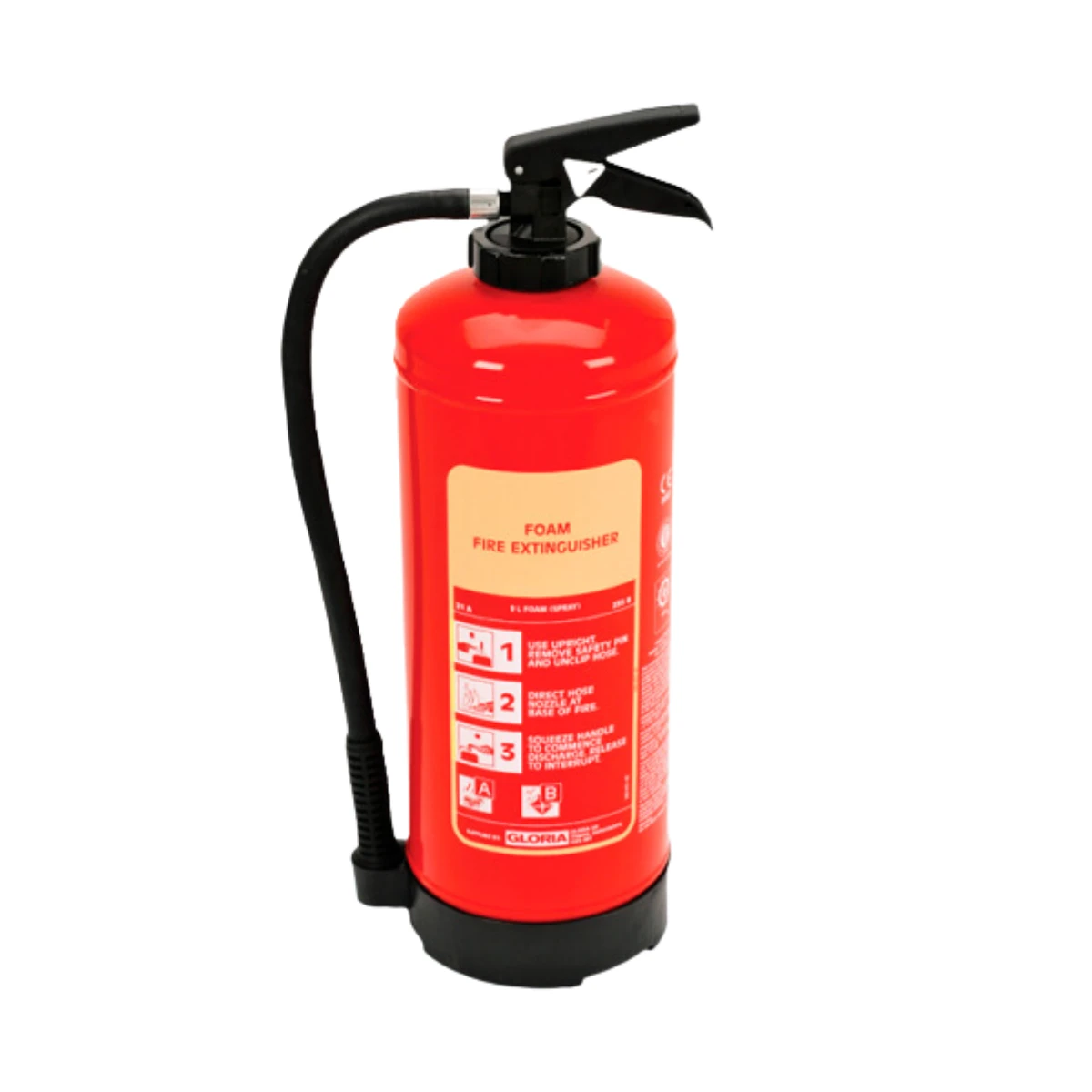



1 items added to basket
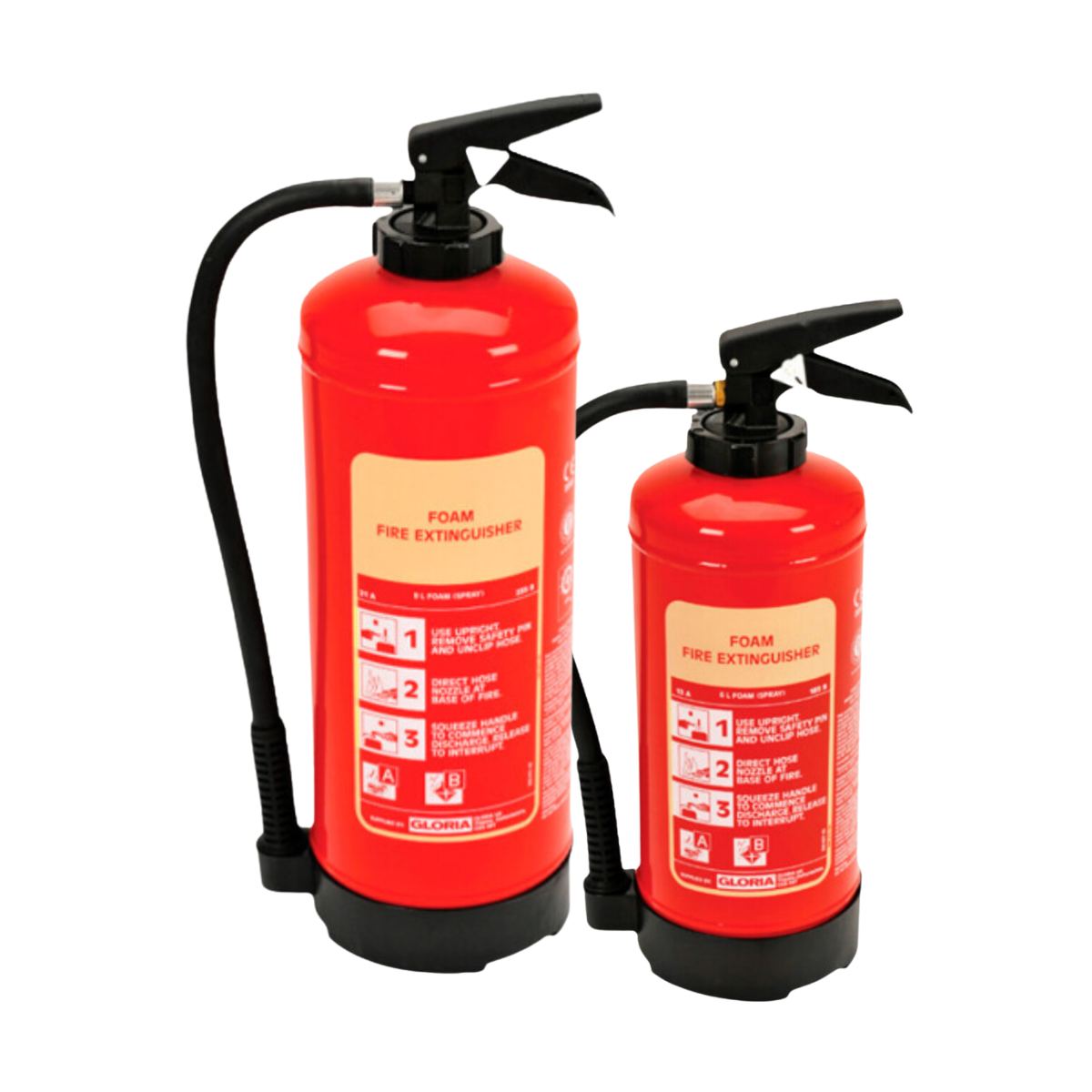
Gloria Foam Fire Extinguisher - Cartridge Operated







from
INC VAT
Code: GE001/026


The Gloria cartridge operated foam fire extinguisher is suitable for use on class A and B class type fires which involve materials such as paper, card, straw, wood, rubber, plastics, liquid spill fires such as petrol, oil, fats, paints and many more.
A number of places AFFF Fire Extinguishers are best used within are: Hospitals, Supermarkets, Hotels, Public Places, Restaurants, Industrial Units and many others.
CE approved
Kitemarked to BS EN3
MED approved
Passed 35kv conductivity test
Polythene internal lining
Corrosion resistant finish
Hanging bracket included
Super strong base skirt for protection
Squeeze grip operation
Built to last - ideal for harsh environments
Easy to service
5-year warranty on all models
Capacity | 6ltr (SI6DB/S6E) | 9ltr (SI9DB/S9E) |
Fire rating | 21A 183B | 27A 233B |
Extinguisher medium | AFF Foam | AFF Foam |
Temperature range | +5°C - +60°C | +5°C - +60°C |
Pressuring gas | Nitrogen | Nitrogen |
Cylinder material | Steel | Steel |
Working pressure | 15 bar | 15 bar |
Discharge time | ≥68 seconds | ≥87 seconds |
Range of throw | >5m | >5m |
Height | 600mm | 620mm |
Diameter | 150mm | 190mm |
Width including hose | 310mm | 290mm |
Weight | 9.8kg | 15.2kg |
A. Similarly to water fire extinguishers, AFFF foam fire extinguishers are designed to combat fires involving combustible solids, such as wood, cloth and paper. However, in addition to Class A fires, the AFFF foam fire extinguisher can be used on Class B flammable liquid fires. AFFF foam works by creating a thin layer between the flame and oxygen.
A. The foam fire extinguisher label is cream-coloured with either white or red capitalised text.
A. AFFF foam fire extinguishers are commonly found in garages, factories, offices, warehouses, hospitals and shops. Basically, anywhere a water fire extinguisher would be suitable.
A. Even if you've only used a fire extinguisher for a minute or two, it will need recharging. An extinguisher can also require refilling once its contents have aged enough. However, important to note, it's often more economical to replace an entire extinguisher than it is to refill the one you have.
A. All our portable fire extinguishers are supplied ready for use, but those with larger capacities may need to be filled and charged prior to the first time they’re used. The product listing will explain this clearly.
A. Fire extinguishers must be serviced every 12 months, this is known as the “basic service”. This service should be performed in accordance with British Standard BS5036-3 and conducted by a third-party, appropriately trained technician.
A. This depends entirely on what you are trying to extinguish, below are some examples of fires you could encounter.
Class A – Solid Combustibles (wood, paper, cloth etc.)
· Class A Fire Extinguishers – Water, Water Additive, Dry Powder and Wet Chemical
Class B – Flammable Liquids (oils, solvents, alcohol, gasoline etc.)
· Class B Fire Extinguishers – CO2, Dry Powder and Foam
Class C – Flammable Gases (propane, butane, petroleum gases etc)
· Class C Fire Extinguishers – Dry Powder
Class D – Flammable Metals (magnesium, sodium, potassium, calcium, titanium etc.)
· Class D Fire Extinguishers – Specialist Dry Powder (M28, MonneX and L2)
Electrical – Electrical Fires
· Fire Extinguishers for Electrical Fires – CO2 and Dry Powder
Class F – Flammable Cooking (cooking oils and fats)
· Class F Fire Extinguishers – Wet Chemical
A. The foam in the fire extinguisher is Aqueous Film Forming Foam, commonly referred to as AFFF, and creates a layer over combustible liquids, smothering and quenching fires. AFFF works by suffocating or dousing the fire and sealing in any flammable vapours, preventing re-ignition. The foam will put out liquid fires by creating a thin barrier between the surface of the flammable fluid and the flame.

The Gloria cartridge operated foam fire extinguisher is suitable for use on class A and B class type fires which involve materials such as paper, card, straw, wood, rubber, plastics, liquid spill fires such as petrol, oil, fats, paints and many more.
A number of places AFFF Fire Extinguishers are best used within are: Hospitals, Supermarkets, Hotels, Public Places, Restaurants, Industrial Units and many others.

CE approved
Kitemarked to BS EN3
MED approved
Passed 35kv conductivity test
Polythene internal lining
Corrosion resistant finish
Hanging bracket included
Super strong base skirt for protection
Squeeze grip operation
Built to last - ideal for harsh environments
Easy to service
5-year warranty on all models

Capacity | 6ltr (SI6DB/S6E) | 9ltr (SI9DB/S9E) |
Fire rating | 21A 183B | 27A 233B |
Extinguisher medium | AFF Foam | AFF Foam |
Temperature range | +5°C - +60°C | +5°C - +60°C |
Pressuring gas | Nitrogen | Nitrogen |
Cylinder material | Steel | Steel |
Working pressure | 15 bar | 15 bar |
Discharge time | ≥68 seconds | ≥87 seconds |
Range of throw | >5m | >5m |
Height | 600mm | 620mm |
Diameter | 150mm | 190mm |
Width including hose | 310mm | 290mm |
Weight | 9.8kg | 15.2kg |

A. Similarly to water fire extinguishers, AFFF foam fire extinguishers are designed to combat fires involving combustible solids, such as wood, cloth and paper. However, in addition to Class A fires, the AFFF foam fire extinguisher can be used on Class B flammable liquid fires. AFFF foam works by creating a thin layer between the flame and oxygen.
A. The foam fire extinguisher label is cream-coloured with either white or red capitalised text.
A. AFFF foam fire extinguishers are commonly found in garages, factories, offices, warehouses, hospitals and shops. Basically, anywhere a water fire extinguisher would be suitable.
A. Even if you've only used a fire extinguisher for a minute or two, it will need recharging. An extinguisher can also require refilling once its contents have aged enough. However, important to note, it's often more economical to replace an entire extinguisher than it is to refill the one you have.
A. All our portable fire extinguishers are supplied ready for use, but those with larger capacities may need to be filled and charged prior to the first time they’re used. The product listing will explain this clearly.
A. Fire extinguishers must be serviced every 12 months, this is known as the “basic service”. This service should be performed in accordance with British Standard BS5036-3 and conducted by a third-party, appropriately trained technician.
A. This depends entirely on what you are trying to extinguish, below are some examples of fires you could encounter.
Class A – Solid Combustibles (wood, paper, cloth etc.)
· Class A Fire Extinguishers – Water, Water Additive, Dry Powder and Wet Chemical
Class B – Flammable Liquids (oils, solvents, alcohol, gasoline etc.)
· Class B Fire Extinguishers – CO2, Dry Powder and Foam
Class C – Flammable Gases (propane, butane, petroleum gases etc)
· Class C Fire Extinguishers – Dry Powder
Class D – Flammable Metals (magnesium, sodium, potassium, calcium, titanium etc.)
· Class D Fire Extinguishers – Specialist Dry Powder (M28, MonneX and L2)
Electrical – Electrical Fires
· Fire Extinguishers for Electrical Fires – CO2 and Dry Powder
Class F – Flammable Cooking (cooking oils and fats)
· Class F Fire Extinguishers – Wet Chemical
A. The foam in the fire extinguisher is Aqueous Film Forming Foam, commonly referred to as AFFF, and creates a layer over combustible liquids, smothering and quenching fires. AFFF works by suffocating or dousing the fire and sealing in any flammable vapours, preventing re-ignition. The foam will put out liquid fires by creating a thin barrier between the surface of the flammable fluid and the flame.

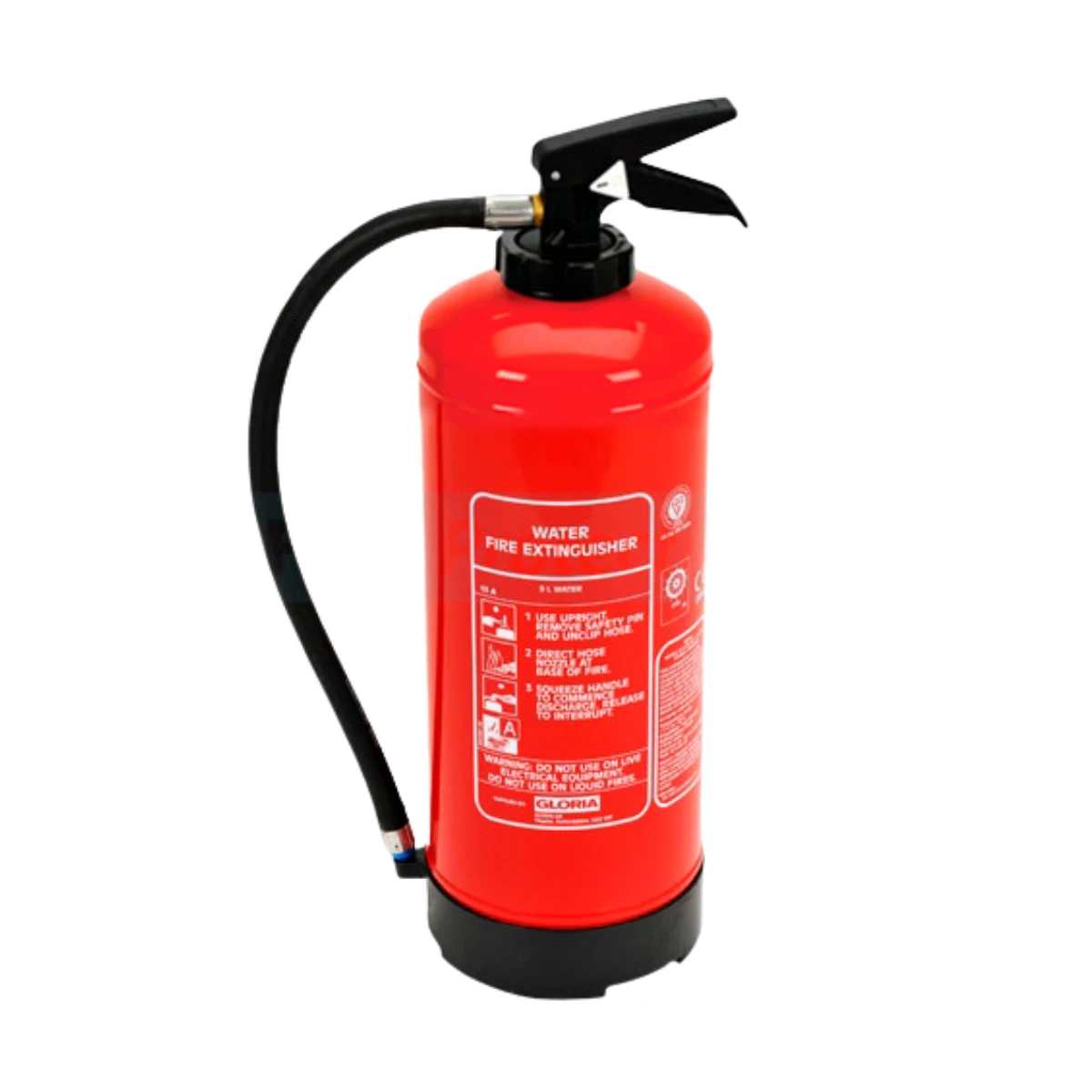
GE001/025
ex vat
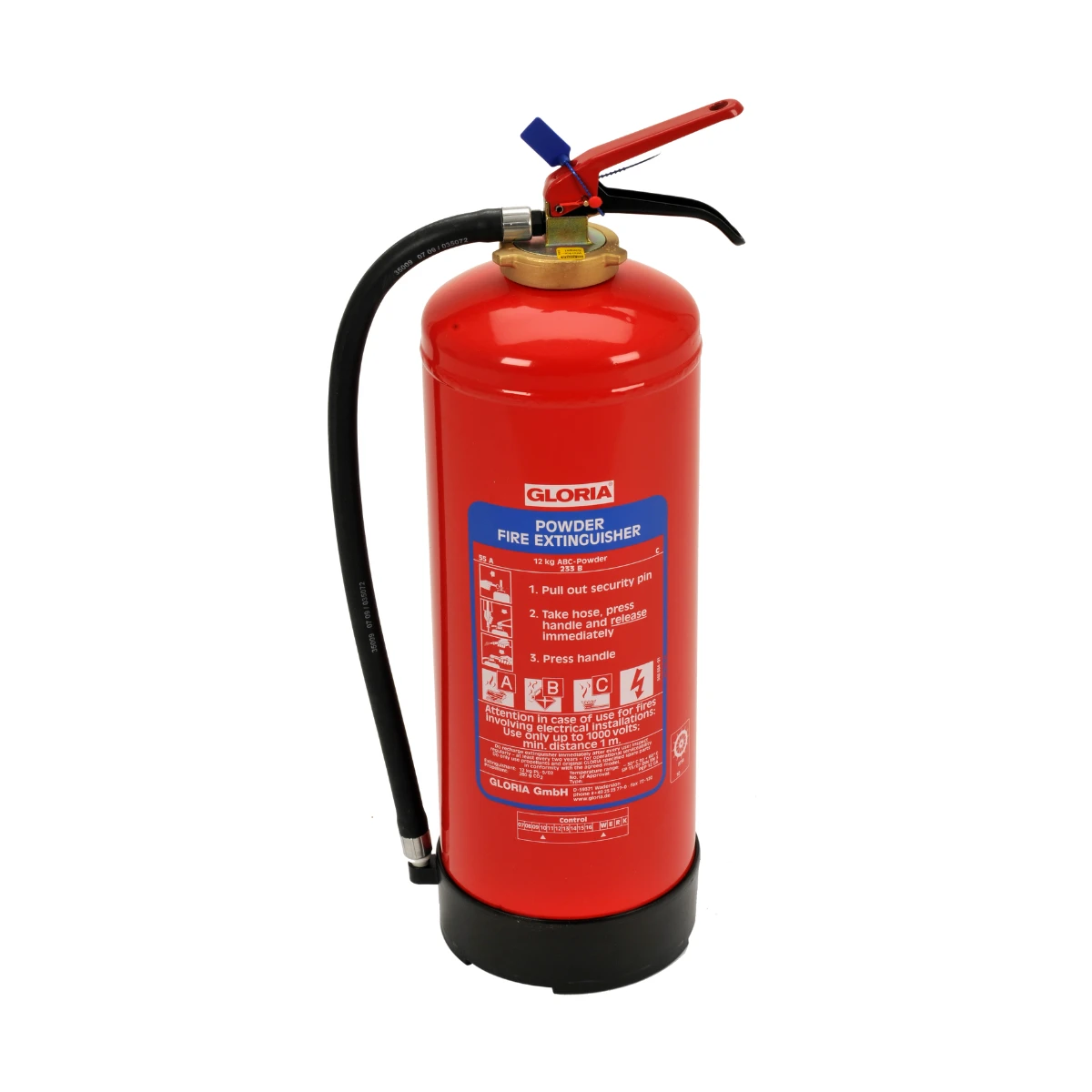
GE001/028
ex vat

GE001/026
ex vat

GLFES001/036
ex vat
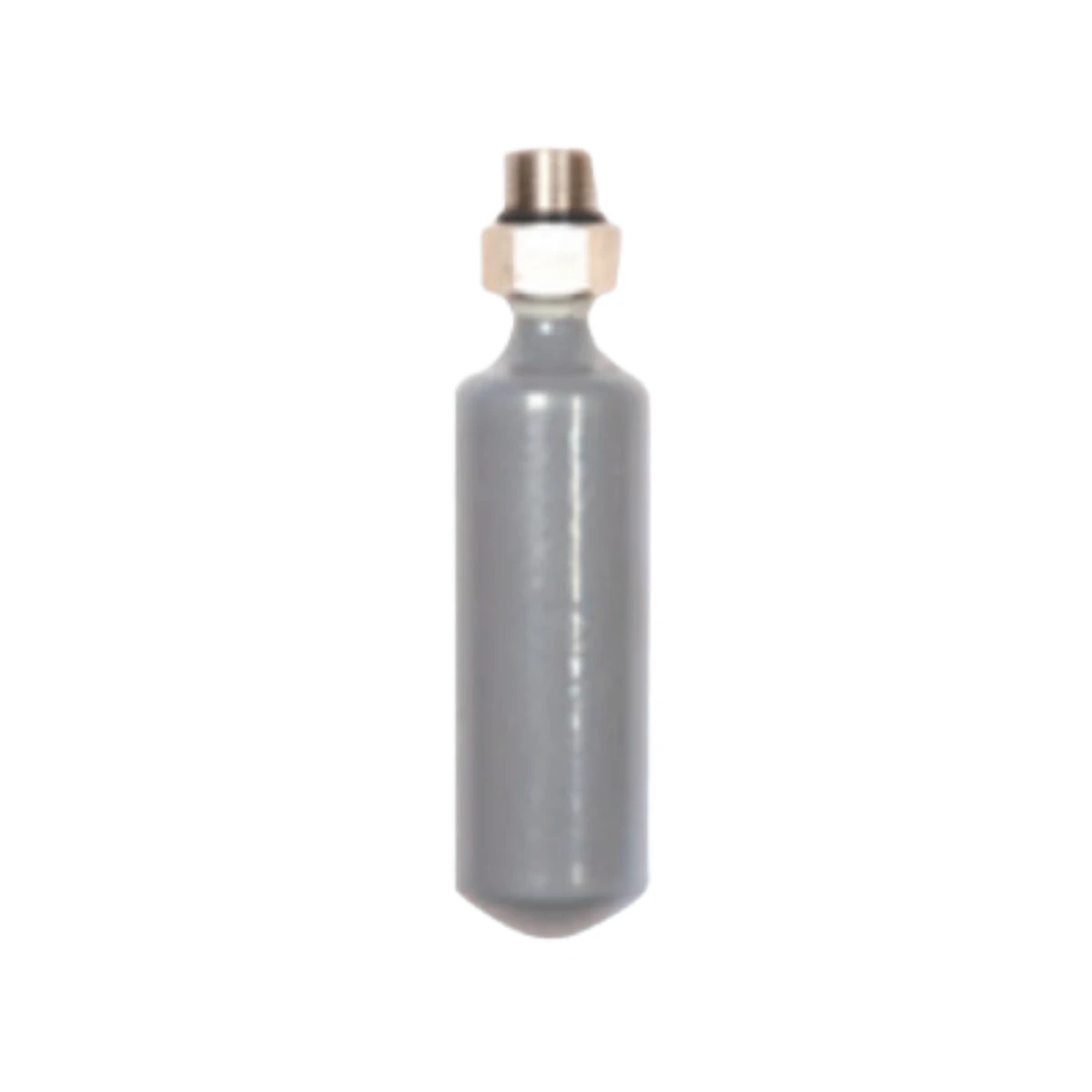
FPS/FES068
ex vat
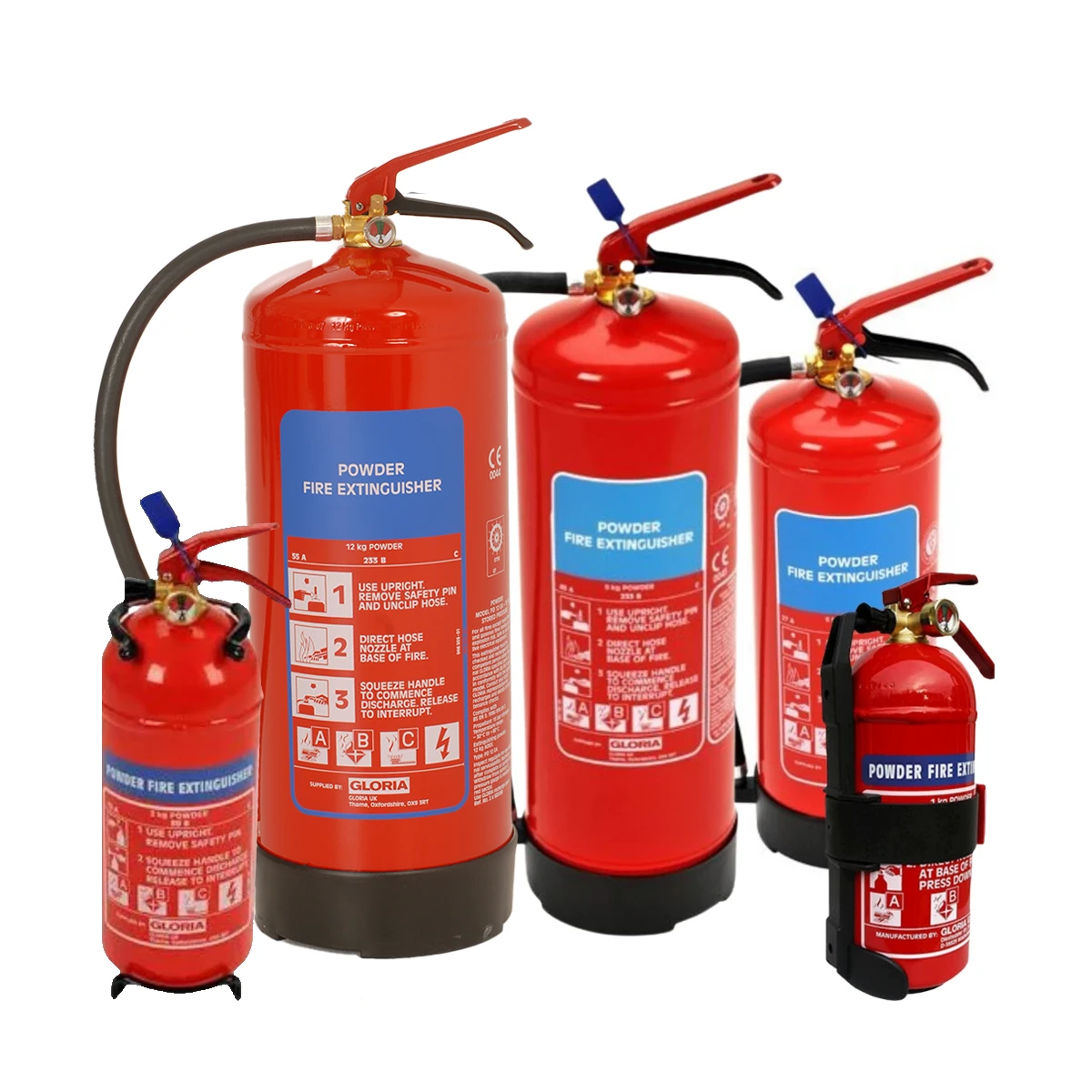
GE001/012
ex vat
Fire Protection Shop specialise in the supply of high-quality fire extinguishers. There are many different classifications of fire and so our products include a variety of different extinguisher types. For example, we offer water or foam fire extinguishers for solid combustibles and carbon dioxide fire extinguishers for flammable liquid or electrical fires. Each extinguishing agent comes with its benefits. Typically, water extinguishers are cheaper, produce a cooling effect and prevent reignition once the fire has been extinguished. Carbon dioxide extinguishers are clean agents, they leave no residue, are suitable for electrical fires and are often used on liquid fires which include petrol, oil or other solvents.
In addition to our extinguishers, we offer a range of fire safety products to both domestic and commercial premises. This includes the supply of fire blankets, extinguisher stands, smoke alarms, first aid kits and much more. Our entire range is sourced from reputable brand manufacturers at competitive prices. Also, all of our products carry a full warranty and guarantee and are supplied with relevant fixings where applicable.
So, for fire extinguishers, alarms and all your other fire safety needs, trust Fire Protection Shop to give you the quality, expertise and service you require.
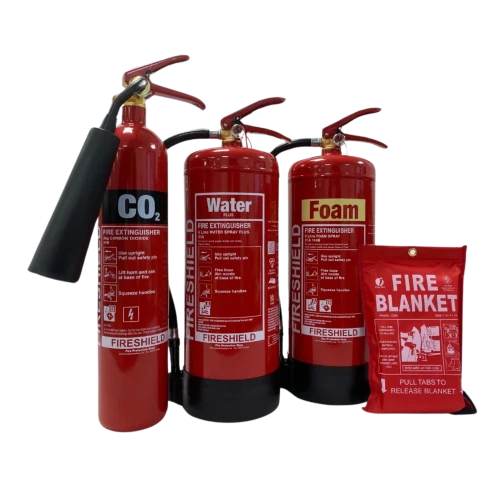



We use cookies to enhance your site experience. Choose your preferences below.

